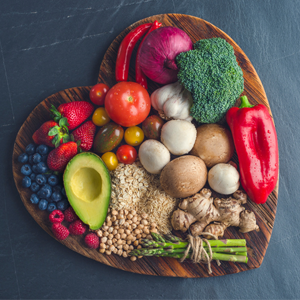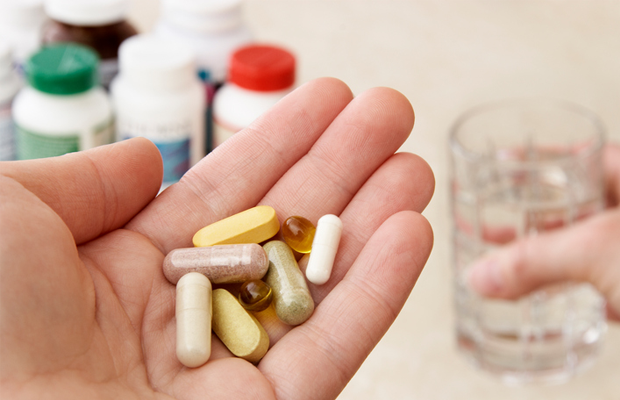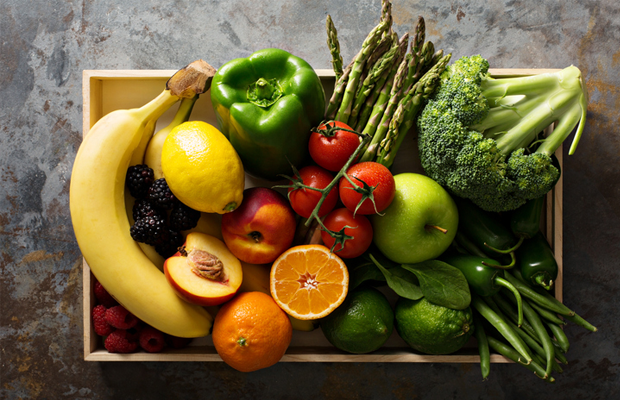
It’s billed as an epic story of good versus evil – biology in comic-book form. The villains: free radicals, those nefarious DNA-attacking poisons of modern life. Our fearless defenders: antioxidants, poised to protect us from – well, everything, right?
You’ve heard the claims. But while we think we know what antioxidants do, few of us know what antioxidants actually are. And food manufacturers are fine with that; the less you know, the more likely you are to swallow the hype.
“Antioxidants have a health aura around them,” says Marion Nestle, PhD, MPH, a professor of nutrition, food studies, and public health at New York University.
“They are supposed to fight something bad in your body. Who wouldn’t want to consume more of a helper like that?”
Read more: Coffee might be a more powerful antioxidant than we thought
There’s no doubt that antioxidants can be good for you. But to maximise their benefit, we first have to strip away some assumptions.
1. Free radicals must be destroyed
Not so fast.
The basics: Antioxidants fight free radicals, which are unstable molecules in the body that can cause DNA mutation. Even though free radicals have been linked to serious conditions like heart disease, Parkinson’s and cancer, they aren’t necessarily villains – they’re by-products of a basic metabolic process called oxidation.
“They’re absolutely essential to life,” says Jeffrey Blumberg, PhD, director of the antioxidants lab at Tufts University. “For example, immune cells will shoot free radicals onto invading bacteria in order to kill them. They’re an important part of the body’s defences.”
Too many free radicals, on the other hand, are harmful. Pollutants, cigarette smoke and sun overexposure can generate so many free radicals that your normal antioxidant defences become overwhelmed, leaving you vulnerable to cell damage and disease. Some researchers also link free-radical oxidation with aging.

That’s where antioxidants come in. “We need to make sure we have adequate antioxidant defences to combat all the excess free radicals,” says Blumberg.
Read more: 3 supplements that you really need in your diet, and 3 that are just wasting your money
Do this: Assuming you’ve curbed bad habits such as smoking and excessive tanning, turn to your diet. If you eat a wide variety of fruits and vegetables, your diet is naturally rich in thousands of antioxidants.
Studies suggest eating at least five servings of fruits and vegetables a day to reap the most health benefits.
2. All antioxidants are created equal
Not even close.
Any molecule that protects your cells against oxidation is technically an antioxidant, says Joe Vinson, PhD, a professor of chemistry at the University of Scranton, in Pennsylvania. “They’re anti-oxidation.”
This includes familiar nutrients, like vitamins, as well as more unfamiliar types of antioxidants, like flavonoids and polyphenols – about 8 000 varieties in all.
But don’t assume that all antioxidants operate the same way, Blumberg warns.
“You can’t say, ‘Well, I’m not going to worry about taking in enough vitamin E, because I take lots of vitamin C.’ All the vitamin C in the world won’t substitute for vitamin E,” says Blumberg.

Some antioxidants excel at fighting certain types of free radicals (yep, there are different varieties of those, too) while others are effective only in specific parts of a cell. Still others can battle free radicals only under the right conditions.
“Think of antioxidants as an army,” he says. “You need generals, lieutenants, corporals, privates and others with specific duties. You can’t fight an enemy with only generals.”
So how do you create an effective defence system in the battle for your life? By building a multipronged counteroffensive – er, diet.
Read more: This diet is ranked #1 in the world – but is it right for you?
Do this: Branch out and try something new in the produce aisle. In a 2006 study, researchers at Colorado State University found that people who ate the widest variety of fruits and vegetables had the most DNA protection.
3. All antioxidants come from fruits and vegetables
Wait a minute.
The entire plant kingdom – including beans, nuts, seeds and grains – is awash in antioxidants, according to a recent study from the University of Scranton. That’s because all plants produce antioxidants to fight against predators and UV rays, says Vinson.

It’s important to steer clear of refined grains, though; they’ve been stripped of most of their antioxidant benefits.
Even meat, dairy products and eggs contain some antioxidants, which mainly come from the nutrient-rich plants the animals fed on.
Read more: You probably don’t need to eat as many fruits and vegetables as you think
Do this: Eat whole-grain foods, beans, nuts and seeds regularly. When animals are on the menu, make sure they’ve been grass-fed; meat and dairy products from these better-fed beasts have been shown to contain higher levels of antioxidants. Eggs from pastured hens also rank higher in antioxidants – look for them at farmers’ markets.
4. Antioxidant-fortified foods are healthier
Not really.
The ink was barely dry on early antioxidant studies when food companies started slapping the A-word on their packaging. You can even chug an antioxidant-fortified version of Cherry 7UP.
The FDA requires food manufacturers to list the variety of antioxidant in a product; that part is often in fine print. Look closely and the label reveals that you’re receiving a tiny helping of vitamin E. Perhaps “Cherry 7UP Vitamin E” didn’t sound as impressive.
If you’re relying on processed foods to supplement your antioxidant intake, you may be surprised to find that many processed foods have relatively small amounts of just one or two kinds. Since variety is critical, you probably aren’t making up for lost ground.
Read more: Are fresh or frozen fruits and vegetables better for you?
Do this: Ignore the hype – there’s no research to prove that packaged products provide the same health benefits that whole foods do. Instead, focus on the ingredient list. If a food product contains mostly plant foods, it’s likely to be rich in antioxidants.

5. If I exercise and take supplements, I’ll be superfit
Maybe not.
Working out leads to more oxidation and an increase in free radicals. That’s not a bad thing.
“Since free-radical production is a normal response to exercise, taking a large dose of antioxidants right after a workout could interfere with the natural, beneficial response to exercise,” says nutritionist Alan Aragon, MS, a Men’s Health weight-loss expert.
The logic is unexpected but clear: Scientists speculate that the oxidative stress triggered by exercise promotes insulin sensitivity and weight loss, and possibly reduces your risk of diabetes.

Case in point: A 2009 German study found that when exercisers took antioxidant supplements (vitamins C and E), they weren’t rewarded with the typical post-exercise boost in insulin sensitivity. So much for that well-intentioned antioxidant-fortified recovery drink.
Michael Ristow, MD, an author of the study and chairman of the department of human nutrition at the University of Jena, Germany, speculates that other antioxidant supplements might have similar negative effects, though more study is needed.
Read more: You might be taking the wrong form of this common supplement
Supplements can even sap your power: A 2006 British study found that runners who took 1 000mg of vitamin C daily for a week lost muscle strength.
Do this: If you’re exercising to lose weight, your antioxidants should come from whole foods, not from supplements or antioxidant-enhanced food products.
When it comes to antioxidants, more isn’t always better.
How antioxidants work
Normal cellular processes – as well as stressors like cigarette smoke and sunburn – trigger your body to produce excessive amounts of cell-damaging molecules called free radicals.
Here’s how antioxidants can come to the defense.
1. When a molecule loses an electron, it becomes a reactive free radical with an extra, unpaired electron.
2. The free radical tries to steal an electron from a nearby molecule to regain balance.
3. This can create another free radical, causing a chain reaction that can damage cell components, including DNA. This can lead to possible health problems ranging from a weakened immune system to cancer.
4. An antioxidant molecule can neutralise a free radical by giving up one of its own electrons. Unlike a free radical, it’s able to maintain stability by redistributing its electrons.
This article was originally published on www.mh.co.za
Image credits: iStock




 Publications
Publications
 Partners
Partners














